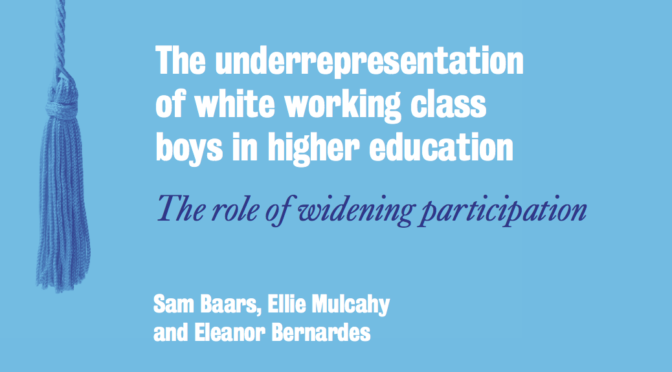Only 10% of the most disadvantaged white British males progress to higher education. Not only is this significantly less than the most advantaged white males, it is also significantly less than the progression to HE of disadvantaged males from all other ethnic backgrounds. Almost twenty years after the Dearing Report highlighted the underrepresentation of students from lower socioeconomic backgrounds in HE, and emphasised the role of widening participation in addressing the problem, this report, co-authored on behalf of LKMco with Ellie Mulcahy and Eleanor Bernardes, considers:
- How to define white working class boys
- Why they are less likely to enter higher education
- The degree to which they are underrepresented in elite institutions and alternative routes through higher education
- The challenges and barriers faced by widening participation practitioners in tackling the problem
- How widening participation practitioners can work best with white working class boys
The report responds to the government’s call, in February 2016, for universities to specifically target white working class boys in order to increase their participation in higher education, as part of a wider drive to improve the social mobility of disadvantaged groups.
The report aims to provide widening participation practitioners with a comprehensive overview of white working class boys’ underrepresentation in higher education, from its causes to its potential solutions. In order to do so the report draws together findings from a literature review, an academic and practitioner roundtable and a set of university case studies, allowing insights from academic research and the perspectives of practitioners from primary through to HE to be brought together in one place.
You can download the full report here. The report received international coverage in Fox News, The Daily Mail, The Independent, The Times, Huffington Post, Schools Week, Times Higher and the TES. I also discussed our findings on Dubai Eye radio:
There’s also a video of our launch presentation at the Brilliant Club Annual Conference, which gives a detailed summary of our findings and recommendations:
